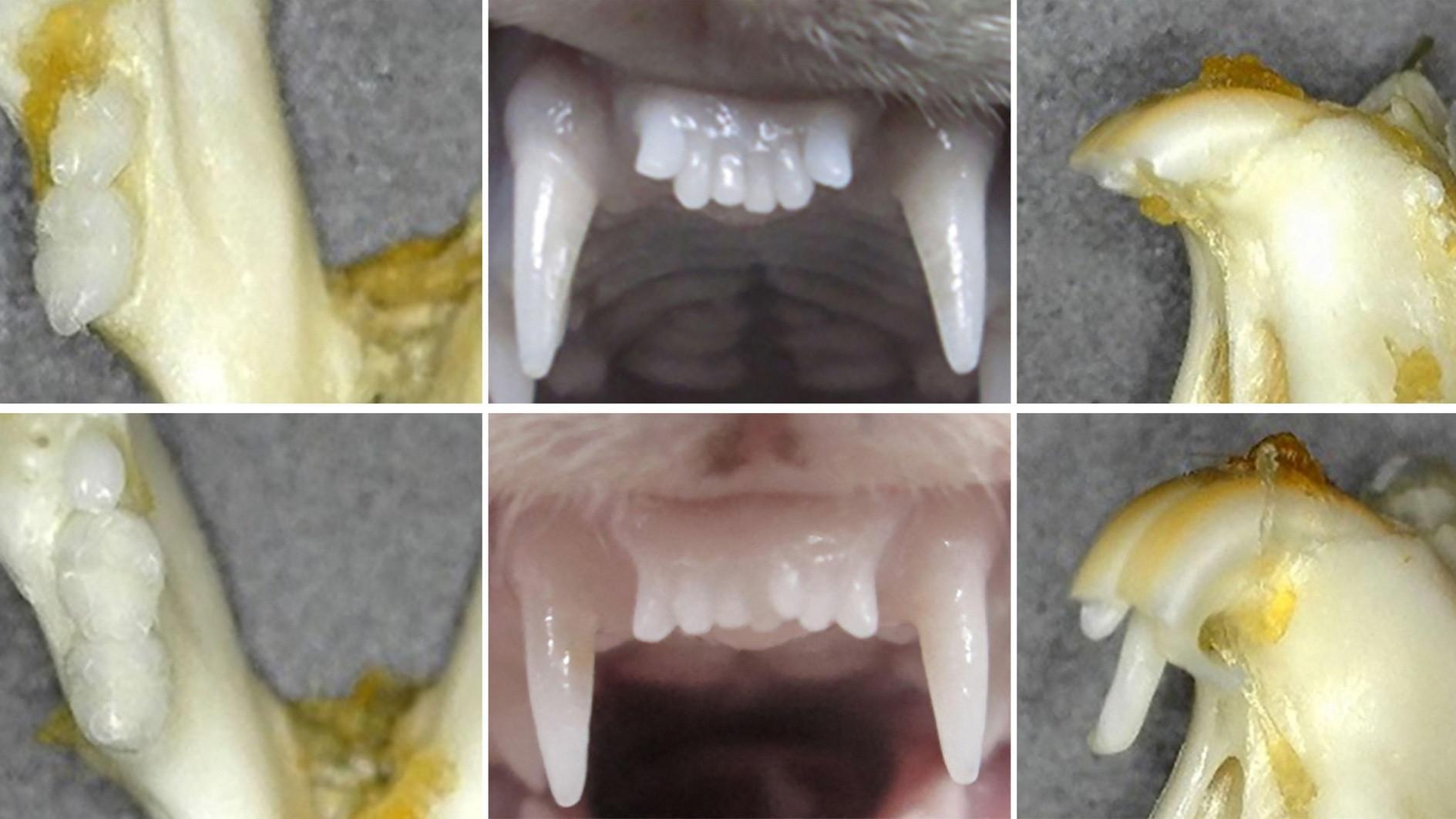
This combination of undated handout images received by AFP on Nov. 5, 2024 by the Medical Research Institute Kitano Hospital in Osaka shows before (top) and after images of the regrowth of a teeth in a ferret (centre top and bottom) and mice (R and L).
People with missing teeth may be able to grow new ones, say Japanese dentists testing a pioneering drug they hope will offer an alternative to dentures and implants.
Unlike reptiles and fish, which usually replace their fangs on a regular basis, it is widely accepted that humans and most other mammals only grow two sets of teeth.
But hidden underneath our gums are the dormant buds of a third generation, according to Katsu Takahashi, head of oral surgery at the Medical Research Institute Kitano Hospital in Osaka.
His team launched clinical trials at Kyoto University Hospital in October, administering an experimental medicine to adult test subjects that they say has the potential to jumpstart the growth of these concealed teeth.
It's a technology "completely new" to the world, Takahashi told AFP.
Prosthetic treatments used for teeth lost to decay, disease or injury are often seen as costly and invasive.
So "restoring natural teeth definitely has its advantages," said Takahashi, the project's lead researcher.
Tests on mice and ferrets suggest that blocking a protein called USAG-1 can awaken the third set, and the researchers have published lab photographs of regrown animal teeth.
In a study published last year, the team said their "antibody treatment in mice is effective for tooth regeneration and can be a breakthrough in treating tooth anomalies in humans."
For now, the dentists are prioritizing the "dire" needs of patients with six or more permanent teeth missing from birth.
The hereditary condition is said to affect around 0.1 percent of people, who can have severe trouble chewing.
The drug is therefore aimed primarily at children, and the researchers want to make it available as early as 2030.